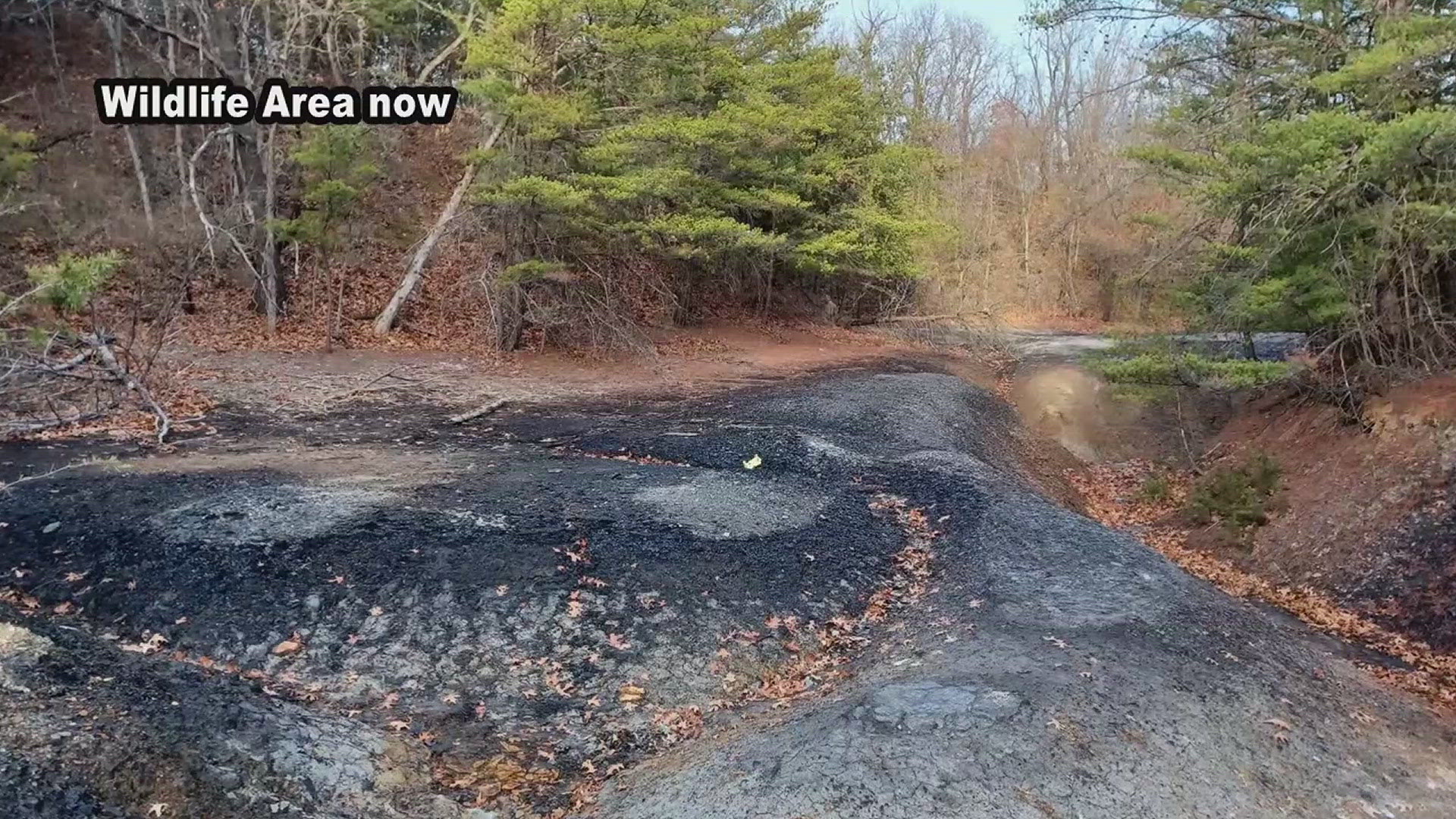PELLA, Iowa — Iowa officials are continuing a massive mine reclamation project in the central part of the state, hoping to turn around decades of environmental degradation.
The Pella Wildlife Area is a 277-acre stretch of land about a mile south of the town of Pella. It was the home of a strip coal mine until the 1950s, until it was acquired by the state. It's now managed by the Iowa Department of Natural Resources.
"The story goes that a farmer had cattle on the mine, and when they drank the water, the cattle died because the water quality was so poor," said Todd Gosselink, Iowa DNR wildlife biologist and a land manager at the wildlife area. "It was basically an ecological disaster."
Gosselink said native wildlife was being choked out in the area, and invasive species, such as honeysuckle, Japanese raspberry and black locust were moving in.
Now, the Iowa Department of Agriculture and Land Stewardship Mine Reclamation program has received $4 million to completely change the entire area. The money comes from mining royalties in western states with active coal mines, as well as the Biden administration's 2021 national infrastructure investment.
The north half of the area was closed to all public use on October 1, and the south half will close on November 1. The entire wildlife area will be closed to the public until the project is complete in late 2025.
Once finished, the wildlife area will have a 70-acre timber of oak and hickory, 20 acres of wetlands made to filter water, and the rest will be restored prairie. There will also be plants specifically adapted to the acidic soils created by the coal mines.
The hope is to create a better habitat for deer, quail, frogs, pheasants, song birds, turkeys and a whole host of native plants and animals.
"It'll be quite a change," Gosselink said. "It'll be more usably, obviously, for the wildlife that needs prairie grass as well as good quality timber, but also the people using it."
While the project is expected to be 'completed' in late 2025, many of the trees won't be planted until around 2030, to give the soil time to 'mellow out' as Gosselink put it.
"I like to call the rebirth of the Pella wildlife area! You start from something that is just in really poor shape, and you have a rebirthing priority for it, because it's going to be completely different than it was before," Gosselink said. "I's pretty amazing story."
Tune into The Current from 4 to 5 p.m. on weekdays to catch live interviews impacting you, your family and your hometown as well as all of the biggest headlines of the day.

